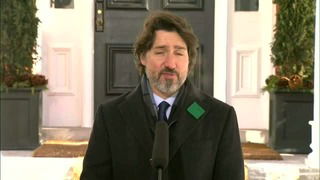Traveling to Canada during Covid-19: What you need to know before you go

If you’re planning to travel to Canada, here’s what you’ll need to know and expect if you want to visit during the Covid-19 pandemic.
The basics
Canada may have fared better than its neighbor to the south, but Covid-19 cases in the country continue to rise. There are strict rules on entry for all, including Canadian citizens and their relatives. All arrivals must quarantine for 14 days.
People older than 5 flying into Canada are required to provide written or electronic documentation showing they received a negative result from a Covid-19 PCR or RT-LAMP test conducted within 72 hours before their scheduled boarding.
And on January 29, the Canadian government announced that most incoming travelers will be required to quarantine in government-approved hotels at their own expense, and flights to the sun-soaked Caribbean and Mexico will be suspended through April. Read more about these newest measures here.
What’s on offer
This is the ultimate destination for adventure. Whether it’s skiing and snowboarding in the Rockies or bear watching in the wilds of Ontario, Canada has everything to satisfy travelers who want to spend time in the great outdoors.
Vancouver, Toronto and Montreal are all perfect for city breaks, with first rate culture, food and entertainment on offer.
Who can go
Citizens and permanent residents are allowed to enter Canada, but they must quarantine for 14 days. Immediate and extended family members, including those without Canadian citizenship, can enter for any reason as long as they are staying in the country for more than 15 days (they must also quarantine). Those coming for fewer than 15 days can only enter for an essential purpose.
All extended family members (but not immediate family) must also have written permission from Immigration, Refugees and Citizenship Canada (IRCC). For more information, click here. Only essential travel and transiting passengers are otherwise allowed.
Canada’s ban on flights from the UK ended on January 8.
What are the restrictions?
As of November 21, all permitted arrivals must use the ArriveCAN app or website to submit travel and contact information, a 14-day quarantine plan and a Covid-19 symptom self-assessment. The quarantine plan must detail where you will stay, how you will get there and how you will arrange for delivery of essentials such as groceries and medicine. Failure to stick to the plan can lead to six months’ jail time and a CAN$750,000 (US$593,000) fine.
Additionally, all arrivals are given a health screening by a border officer to assess any symptoms.
Canadian officials recently said they are working with US officials to close travel loopholes between the two nations that have allowed everything from Canadian snowbirds heading to warmer US climes this winter to families on both sides of the border setting up nonessential visits.
You can keep up with detailed travel rules among the provinces here.
What’s the Covid-19 situation?
Canada dealt well with the initial wave of Covid-19. However, it has been in the grip of a deadly second wave, which experts believe is in part because of indoor mixing around Canadian Thanksgiving in October.
Though case numbers have been in decline since January 8, the Canadian government says “given the number of cases in Canada, the risk to Canadians is considered high.”
Ontario, Canada’s most populous province, has issued a stay-at-home order that took effect January 14 and applies to the whole province, including Toronto and Ottawa.
Quebec is under a full lockdown and on January 9 became the first province to enact a curfew, with residents needing to be in their homes from 8 p.m. until 5 a.m.
Prince Edward Island, Canada’s smallest province, has adopted some of the country’s strictest Covid-19 prevention measures, with non-residents needing to apply for approval to visit in advance.
What can visitors expect?
Mask mandates vary between provinces. Alberta brought in new measures in early December, enforcing face coverings and banning all social gatherings.
The same is also true in British Columbia, where authorities have extended a ban on social gatherings until February 5. Restaurants are open for indoor dining, however they must stop serving alcohol at 10 p.m.
In Alberta, indoor dining at restaurants is banned, while in Toronto, bars and restaurants are also limited to take out service only. All nonessential businesses are closed in Quebec.
Most Canadian provinces continue to advise people to keep a distance of 2 meters (6.5 feet) to cut the spread of the virus.
Useful links
Our recent coverage
Ottawa made it into our list of best winter cities. We’ve looked at Old Quebec’s European charm. And if you’re into extreme skiing, Canada has options here. The Revitalization Project tattoos women in the remote Inuit communities.
